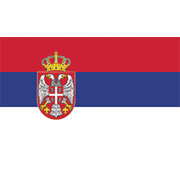General information
The application for the usage of the services of online platform E-Invoice will be possible to the interested and later on obligatory parties in two manners:
• Via usage of the qualified electronic certificate or
• Via two-factor authentication through the usage of mobile application
On the website E-Invoice, there is also a possibility to check the video tutorials for the correct usage of this system. How it will look and function the system of the E-Invoice can be seen in the video tutorial under the name “System E-Invoice”.
Reminder
The fixed deadlines for the obligatory usage of the e-invoicing system, based on the types of the business environment, from which the subject comes is it public or private is fixed in the following manner:
From the 1.1.2022:
• The subject of the public sector has the obligation to:
• Receive, store, issue electronic invoices to another subject of the public sector, to conduct the electronic recording of the VAT calculations.
• The subject of the private sector has the obligation to issue an E-Invoice to the subject of the public sector.
Starting from 1st July 2022:
• The subject of the public sector has the obligation to – issue e-invoice to the subject of the private sector.
• The subject of the private sector has the obligation to receive and store e-invoice.
Starting from the 1.1.2023:
The subject of the private sector has the obligation to – issue, store, and electronically register VAT calculation of the e-invoices.
Other news from Serbia
Serbia Extends Transition Period for usage of Electronic Fiscal Devices on Market Stalls until 2027
 Serbia
Author: Tara Nedeljković
Serbia
Author: Tara Nedeljković
Serbia has postponed the mandatory use of electronic fiscal devices for market stall and green-market sellers until January 1, 2027, keeping them exempt from fiscalization through 2026 under an amended regulation published in the Official Gazette. Read more
Subscribe to get access to the latest news, documents, webinars and educations.
Already subscriber? Login


New document was uploaded: S4FiscalBackoffice Patch
S4F backoffice patch is intended for users who have already installed S4F backoffice and are intended to update existing installations to latest version. To do so apply only patches that are marked with version number that is newer than your currently installed instance of backoffice. Please make sure to install all available patches sequentially (without skipping). This package contains instruction, release notes, changelog and software packages required for deployment of this software component. Read more
Subscribe to get access to the latest news, documents, webinars and educations.
Already subscriber? Login


New document was uploaded: S4F backoffice installer
S4F backoffice installer is intended for users who are installing the software for the first time. Please make sure to obtain latest version of installer and to apply all subsequent patches that are released subsequently. This package contains instruction, release notes, changelog and software packages required for deployment of this software component. This version of the Backoffice installer supports the following countries: Austria, Bulgaria, Croatia, France, Italy, Poland, Portugal, Romania, Slovakia and Slovenia. Read more
Subscribe to get access to the latest news, documents, webinars and educations.
Already subscriber? Login


New document was uploaded: S4FiscalBackoffice Patch
S4F backoffice patch is intended for users who have already installed S4F backoffice and are intended to update existing installations to latest version. To do so apply only patches that are marked with version number that is newer than your currently installed instance of backoffice. Please make sure to install all available patches sequentially (without skipping). This package contains instruction, release notes, changelog and software packages required for deployment of this software component. Read more
Subscribe to get access to the latest news, documents, webinars and educations.
Already subscriber? Login


Serbia is Introducing Mandatory e-Consignments and e-Delivery: Novelties in Digital Logistics
 Serbia
Author: Tara Nedeljković
Serbia
Author: Tara Nedeljković
Serbia's digitalization advances with eConsignment and e-Delivery, enhancing goods tracking and acceptance documentation. Read more
Subscribe to get access to the latest news, documents, webinars and educations.
Already subscriber? Login


New document was uploaded: Checklist for ESIR certification process in Serbia
 Serbia
Author: Ištvan Božoki
Serbia
Author: Ištvan Božoki
The uploaded document serves as the official application template for companies seeking approval for their ESIR (Electronic System for Issuing Receipts) solutions in the Republic of Serbia. Read more
Subscribe to get access to the latest news, documents, webinars and educations.
Already subscriber? Login


The Ministry of Finance in Serbia provided an Official Opinion: Fiscal Receipt Is The Proof for Warranty Claims
 Serbia
Author: Tara Nedeljković
Serbia
Author: Tara Nedeljković
The Ministry of Finance has confirmed that a fiscal receipt is valid for issuing new warranty cards when resolving consumer complaints. This receipt serves as the sole proof of purchase, requiring detailed information like transaction type and tax identification. Read more
Subscribe to get access to the latest news, documents, webinars and educations.
Already subscriber? Login

